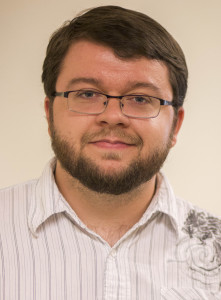April 8, 2015
I remember when I was in high school, teachers would tell us, freshman year, to start thinking about what we want to do with the rest of our lives. Are you kidding me?!

Josh Hafemeister
Managing Editor
Most of us were 14 or 15 years old at that time! My biggest concern at the time was lunch period and getting laid. How can anyone at that age be expected to make plans for what they will do with the rest of their, hopefully, 40 plus working years?
When I graduated high school four years later, I still didn’t know what I wanted to do with my life. I was entering college and pursuing a career. At least, that’s what was expected of me. To just “know” what my career was going to be.
Well, I sort of did. I enjoyed writing and still do, so I’d do something with that.
“But Josh,” some people would say, “If you go into English, the only job you’ll get is a teaching job,” or “If you take a journalism degree, good luck finding a job.”
It all boiled down to that: get a job.
Get a job? Statistics are telling me that I’ll switch careers…what, eight times in my life? Nine? Has it gone that high? Why should I worry about going to college to get a job when my college loans will likely outlive my first post-college job?
This brings me to one of my journalism classes from over a year ago. In that class, we were asked to “report” on Steve Job’s 2005 Stanford Commencement address. That speech probably gave me some of the best advice of my college career.
“You can’t connect the dots looking forward; you can only connect them looking backward,” Jobs said. “So you have to trust that the dots will somehow connect in your future.”
I frankly have no clue where I’ll be in 10 years. I do know, though, that my education in English and journalism will play a part, even if it isn’t in the way I expect.
Jobs enjoyed taking a calligraphy course at Reed College, but as he said, “none of this had any hope of any practical application in my life.”
Turns out, it did. When he worked on creating the first Macintosh computer years later, his education in calligraphy helped him develop a computer with, as he said, “beautiful typography.”
So even if you have no freakin’ clue what your degree will do for you in the future, or if you have no idea what to do with your life, keep another of Job’s quotes in mind.
“You’ve got to find what you love…Your work is going to fill a large part of your life, and the only way to be truly satisfied is to do what you believe is great work. And the only way to do great work is to love what you do. If you haven’t found it yet, keep looking. Don’t settle. As with all matters of the heart, you’ll know when you find it.”

